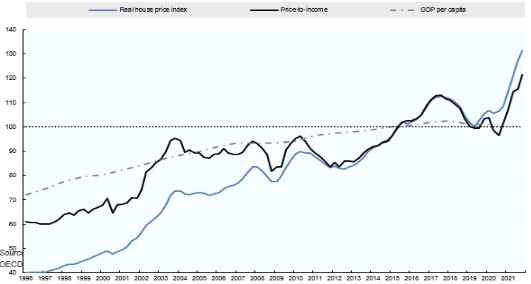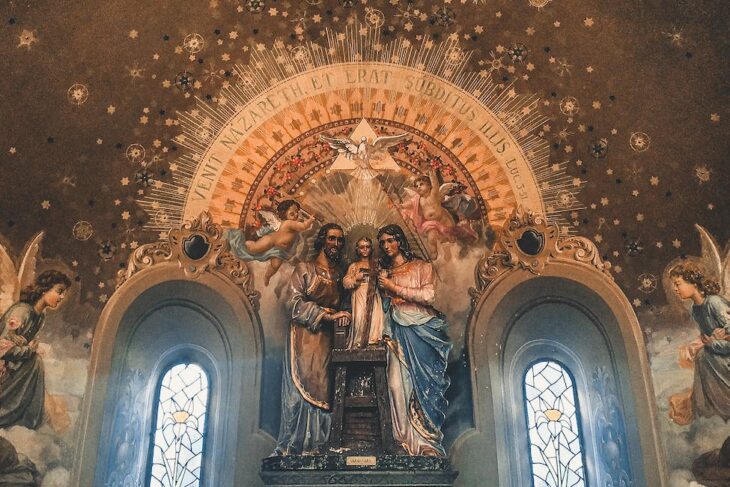
The very idea of a god is a vote of no confidence in ourselves. Human beings must not respect one another if we look to a non-human entity to divinely rule over us. History tells us that civilisation after civilisation have created the existence of supreme beings to sit in judgement over our activities. Whether polytheistic or monotheistic supernatural entities, these gods have been foisted upon communities and cultures to manage their development. Many philosophers and historians have queried this inclination toward religiosity within Homo sapiens. Why do we wish to sit below a divine presence? Is it an unwillingness to take responsibility for ourselves? Nearly all of our leaders have ruled under the auspices of some version of god or pantheon of gods. We clothe our aspirations in the guise of something outside of ourselves. It seems that we lack trust in our own abilities and moral compass.
The Slippery Nature of God
The slippery nature of god sees he, she, or it shrouded in invisibility. The very concept of this divinity is always directly outside of human sensory perception. Human beings are endowered with five main senses but god cannot be experienced via these provable pathways. We have the strange set of circumstances where belief in some sort of divinity is shared by billions of human beings but there is no discernible evidence for the existence of these supernatural entities. Recorded history is around 5 millennia old and in all that time there exists no verifiable proof for the existence of any supernatural entities. Believers put their faith in certain codices claiming to have been divinely revealed to human scribes. Historians have respectfully discredited these claims and shown these texts to have been written by very human minds and hands. Human beings are hiding their light behind masks of divinity. The desire to bolster their authority by claiming divine right is ubiquitous. Human beings must not respect one another upon this basis.
The Very Human but Hidden Urge for Power
You cannot separate the urge for power from these masks of divinity.
Most human beings are content to do what they are told but a few wish to control their fellows. These chieftains and princes, the pages of history tell us, encase their regimes in some sort of holy conception. Their leadership claims are bolstered by the support of a priesthood in service to some god or collection of gods. Egyptian pharaohs were named after a particular god, for example Tutankhamun has the name Amun – the king of the deities in his title. Names and official titles have power, as they are constant reminders to subjects of the king’s divine authority. Constantine the Roman emperor, who is acknowledged as the first Christian ruler in this ancient dynasty, is said to have taken up this obscure Jewish cult for auspicious reasons. According to the story he observed the symbol for Christ in the sky on the eve of battle with a vying Roman Caesar and therefore had this symbol emblazoned on the shields of his legions. His success in this important battle thus sealed the deal on which god to follow going forward. You will find perceived supernatural advantage in military settings inextricably linked to religiosity in ancient and medieval history at the pointy end of power.
Animals & Human Beings
Deep time is unimaginable to unscientific anthropocentric religious thought.
Human beings are mammals and Darwin identified our evolutionary link to the great apes. Deep time separates us from this reality. Our earth is more than 400 million years old. Human beings have been on this earth for around 6 million years. Homo sapiens – the modern human being – around 200, 000 years. Our split from the apes occurred some 10 million years ago. Recorded history is a mere 5, 000 years. Deep time is incomprehensible to creatures who only live for around 80 to 90 years. Religious histories of humanity and the creation of the world vary in detail and lengths of time involved but they all greatly underestimate the actual times involved. Deep time is unimaginable to the unscientific anthropocentric conceptions of religious thought. Real truth seekers observe the diminishing credibility of religious authority on this basis. There are clues, however, as to some of the archetypal motivations for human beings to invent these gods to sit above them in life and meaning. The desire to rise above the status of being mere animals is primal in all religious traditions. The idea of a god ruling over our existence and being intimately concerned with us defines our distinct difference from other animals on this earth. The divinely inspired rules and regulations mark us as the chosen ones. Things like having sex with your immediate family members are taboo in nearly all societies imbued with a defining religious tradition. Murdering members of your tribe without very good reason is another taboo. The Christian commandment, “Thou shalt not kill” is actually “Thou shalt not murder.” We are, biologically speaking, animals and share many basic characteristics with them, but we are culturally motivated to see ourselves as far above on the evolutionary scale. The invention of god is a big part of this.
Dying & Our Invention of God
Dying and our mortality is another motivating force in the creation of a system involving an overseeing supreme being. To live and to bring into the world children places us all at odds with the reality of death and dying. Our consciousness of the split between life and death is intolerable without an invented afterlife. The idea that we could emerge as sentient multicellular life in a chaotic unordered world with no defining meaning is a cruel phenomenon for the majority of human beings. We have found a glaring omission and filled it with our own anonymous creation. No human beings want to own up to this feat of human imagination. Prophets like Mohammed and Abraham are acknowledged as vessels of god. We would rather believe in mysterious magical miraculous stuff than in the words and ideas of our brothers and sisters. We are a credulous race that listens to the ridiculous and unlikely over seeing the reality of what is in front of our face. Religion roots us to the irrational shadowy side that flickers inside us like some melodramatic Netflix offering.
Religious beliefs are passed down through families, often, as identifying cultural customs. This makes it difficult for children to reject even nonsensical belief systems, as they are imbued in the very fabric of their familial identity. Prayers and rituals are hypnotic in their repetitive nature and these concepts are deeply embedded within the neural networks of children, as they grow up within religious households. There are varying levels of religiosity, of course, from the all-encompassing to the casual dalliance. Many of us see religion as a harmless outmoded custom that provides psychological comfort for its adherents. However, a belief in an invisible supernatural entity is only a step away from potentially more serious and destructive behaviour as seen by religious extremists. Competing religious beliefs create divisions between human beings and the dangerous conception of the ‘other’. Crimes against humanity data shows how easily it is for those who consider a group of people to be ‘other’ than them to be liable to commit genocide. The Nazi regime encouraged Germans to see Jews and Gypsies as less than human. In Australia, successive governments have encouraged Australians to see illegal refugees as undeserving foreigners involved in criminal activity. In contrast, to religious, ethnic, and national badges humanism sees all human beings sharing basic rights and responsibilities. Moving beyond these limited identities is important for the continuing enlightenment of the world. Human beings must not respect one another under the old conception of religious worship of gods. Placing authority outside of the human sphere will always disempower us from taking ultimate responsibility. We will never truly grow up if we maintain beliefs in prayers and bedtime stories. We are not perfect by any means, but we are what we are. We exist in flesh, blood, and bone. We make mistakes and have plenty left to learn.
©Midas Word


















